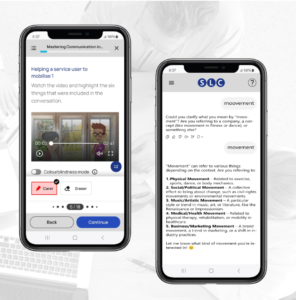
SLC win Ufi grant to develop AI language learning app for social carers
We’re delighted to have won a grant from Ufi VocTech Trust to develop an AI-driven technology solution that provides cheap phone-based language and communication skills

An honorific is a word or title you apply to a person to denote respect. In English, the most used are Mr, Mrs, Miss and Ms.
We also have professional honorifics such as Dr and Rev. Then there are titles bestowed by the state, such as Baroness and Sir. And there are general words such as Sir (again), Madam and Miss.
Confused? Not surprising. But the important thing to learn for Medical English is when to use honorifics, and which ones you should use.
Firstly, for formal English that you’d use with a patient, remember to use title + surname. If you’re unsure of their title, use Mr for a man, and Ms for a woman. If you don’t know their surname, use Sir for a man, and Madam for a woman. Younger women are often called Miss.
Many people who have professional titles like to be addressed by them (perhaps you’re the same). If you forget, you’ll usually be reminded.
However, the UK has changed over the past few decades, becoming more informal. Younger people tend to be comfortable with more informal language, and prefer to be called by their first names. Generally, older people like being known by their correct title.
There’s no definite rule for this – but often, if your patient or client is older than you, they’ll expect more respect.
Still uncertain? Below is SLC’s quick guide to British honorifics, with their meaning.
Honorific | Meaning | Notes |
Mr + surname | man (married / unmarried) | remember to use with surname, not first name |
Ms + surname | woman (married / unmarried) | almost never used by the over 65s |
Mrs + surname | married woman | |
Miss + surname | unmarried woman | |
Sir / Madam / Miss | man / older woman / younger woman | ‘Miss’ is often used for women in their 20s |
Dr | Doctor | used for both women and men |
Rev | Reverend | A male or female member of the clergy |
If you’d like more help in using formal Medical English, see how SLC can help you, along with advice on how to pass the OET.

We’re delighted to have won a grant from Ufi VocTech Trust to develop an AI-driven technology solution that provides cheap phone-based language and communication skills

We’re delighted to announce a partnership with leading Medical English app, Doxa.

Back to Menu ↩ What is the UK Foundation Programme? The UK Foundation Programme is a two-year, structured, work-based training programme which is designed to
Get updates and get the latest materials on Medical English, OET and IELTS
